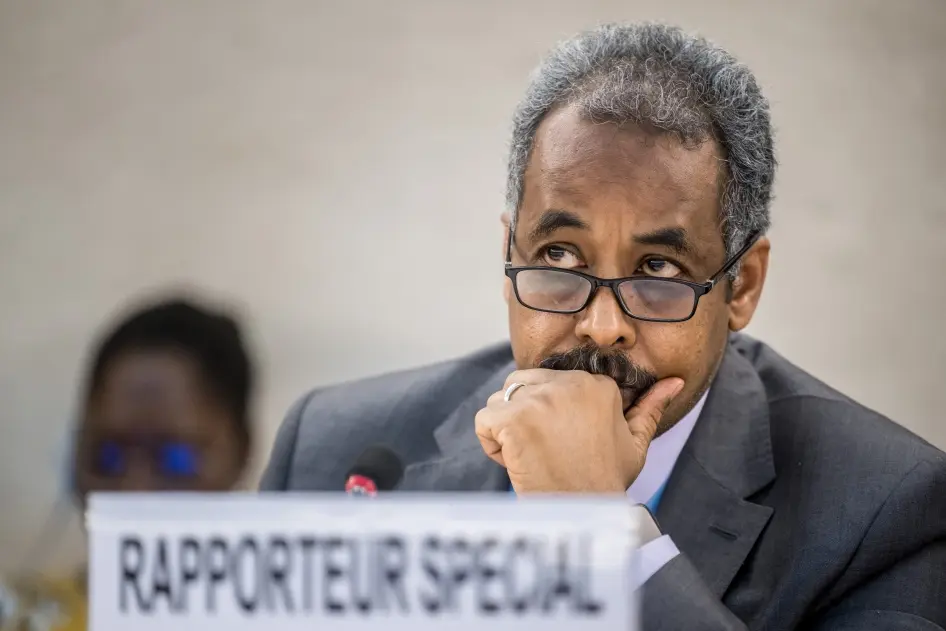Source: Human Rights Watch
Council Should Support Renewal of Special Rapporteur
The government of Eritrea has been working the corridors of the United Nations Human Rights Council in Geneva to try to end the mandate of the UN special rapporteur on Eritrea.
In an clear attempt to scuttle the annual mandate renewal resolution, the Eritrean delegation recently presented a resolution that would terminate the mandate.
Eritrea has presented arguments that are easy to dismiss: that the mandate has no impact, that the special rapporteur cannot even access the country and is doing the bidding of the states who pushed for its creation, not the Eritrean people.
The Eritrean government itself is responsible for the lack of rights progress.
Throughout Eritrea’s time under Council scrutiny, and during its two terms as Council member, the government has proven unwilling to improve its dismal rights record, blocked the special rapporteur’s access to the country, and consistently refused to engage with him.
Eritrean authorities have systematically ignored recommendations by international and regional rights mechanisms, including the special rapporteur, notably refusing to release its countless detainees disappeared into its horrific prison system, or to guarantee freedom of opinion and expression, assembly, religious freedoms, among other grave abuses.
The government has also maintained its indefinite national service policy, punished draft evaders and their families, and failed to stop abuses against conscripts, including children.
Eritrea allows no independent media, civil society organizations, or political opposition parties to operate leaving the executive largely unchecked.
In this context, the work of the special rapporteur shines a much needed light on the situation in Eritrea, and support to Eritrean civil society.
Eritrea is one of the only countries to have never accepted a visit by a UN independent human rights expert. That signals the need for closer scrutiny, not an indicator that a mandate should end.
If Eritrea wants to end or ease UN scrutiny, it should take meaningful steps to improve the rights situation and implement the recommendations of the special rapporteur.
Until then, in the face of flagrant and persistent violations, total disregard for human rights mechanisms, and erasure of domestic civic space, Council members, particularly African states, should stand firm against Eritrea’s efforts to set a negative precedent and undermine the Council’s work and should instead support the renewal of the special rapporteur’s mandate.







